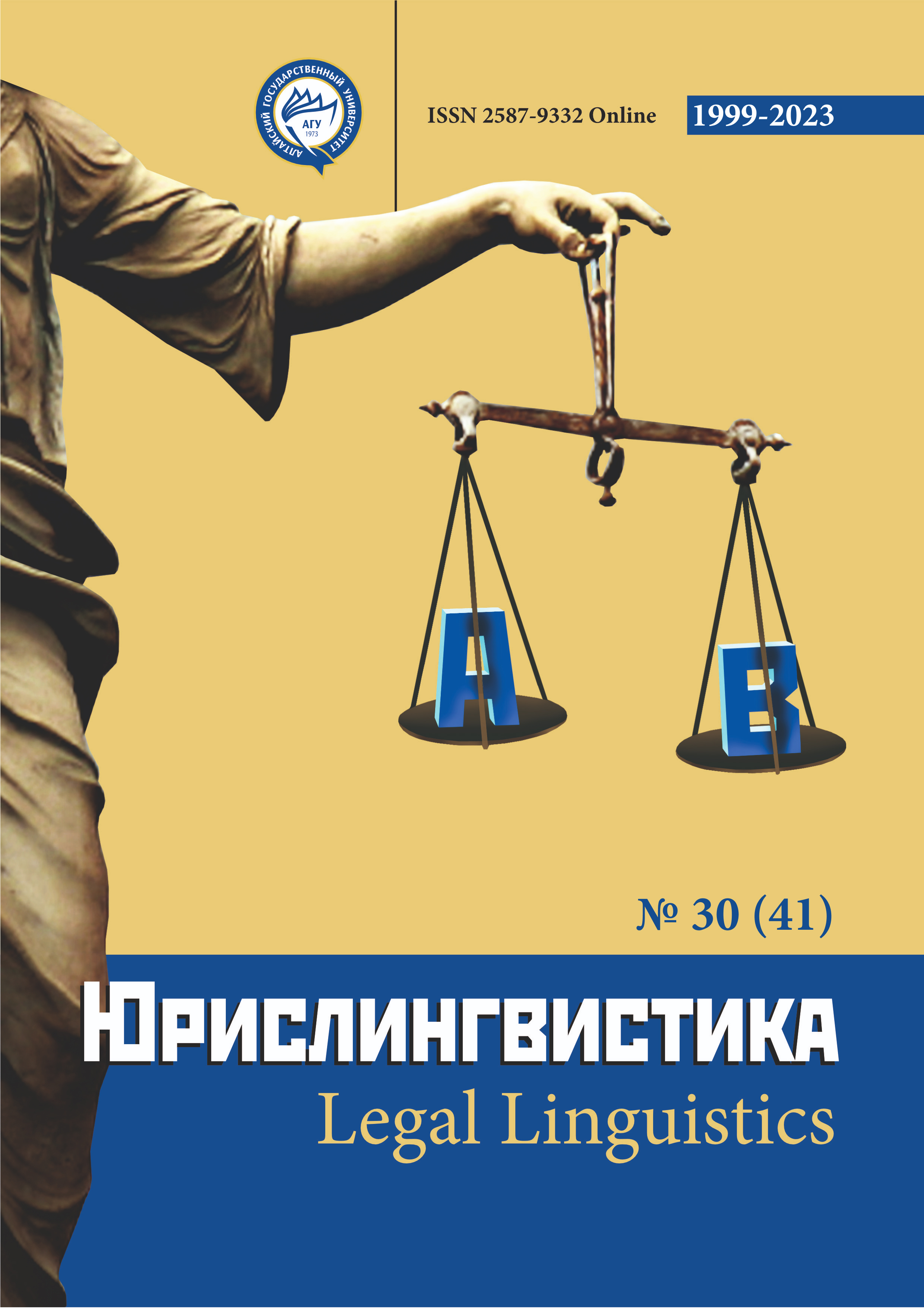Using Expertise in Performing Linguistic Examination
УДК 81`33, ББК 81
Abstract
The article describes the usage of expertise in performing linguistic examination in regards to the procedural aspect of forensic practice, as well as the level of expert’s professional competence. The possibility for non-state experts to apply their specialized knowledge during a trial is noted to depend on who initiates the examination – the court, the prosecution or the defence. The notions of “an expert” in the sense of “standing in the proceedings”, “qualifications as per graduation certificate” and “official capacity at an expert institution” are analysed. The author provides cases from personal practice which expose errors related to competent establishment of an object of examination and to remaining within the boundaries of expert speciality.
Downloads
Metrics
References
Галяшина Е. И. Судебная лингвистическая экспертиза. М., 2022.
Ефремова Т. Ф. Новый словарь русского языка. Толково-образовательный. В 2 т. М., 2000.
Кукушкина О. В., Сафонова Ю. А., Секераж Т. Н. Теоретические и методические основы судебной психолого-лингвистической экспертизы текстов по делам, связанным с противодействием экстремизму. М., 2011.
Постановление Пленума Верховного суда РФ от 21 декабря 2010 года №28 «О судебной экспертизе по уголовным делам».
Федеральный закон от 31.05.2001 №73-ФЗ (ред. от 01.07.2021 г.) «О государственной судебно-экспертной деятельности в Российской Федерации».
Федеральный закон от 18.12.2001 №174-ФЗ (ред. от 28.04.2023) «Уголовно-процессуальный кодекс Российской Федерации».
Хуртилов В. О., Назарова Т. В., Манянин П. А., Серебряков И. А., Лебедев К. А. Техническое исследование фонограмм / Типовые экспертные методики исследования вещественных доказательств. Ч. 1. М., 2010.
Copyright (c) 2023 Александра Манькова

This work is licensed under a Creative Commons Attribution 4.0 International License.
The authors, which are published in this journal, agree to the following conditions:
1. Authors retain the copyright to the work and transfer to the journal the right of the first publication along with the work, at the same time licensing it under the terms of the Creative Commons Attribution License, which allows others to distribute this work with the obligatory indication of the authorship of this work and a link to the original publication in this journal .
2. The authors retain the right to enter into separate, additional contractual agreements for the non-exclusive distribution of the version of the work published by this journal (for example, to place it in the university depository or to publish it in a book), with reference to the original publication in this journal.
3. Authors are allowed to post their work on the Internet (for example, in a university repository or on their personal website) before and during the review process of this journal, as this may lead to a productive discussion, as well as more links to this published work (See The Effect of Open Access).











